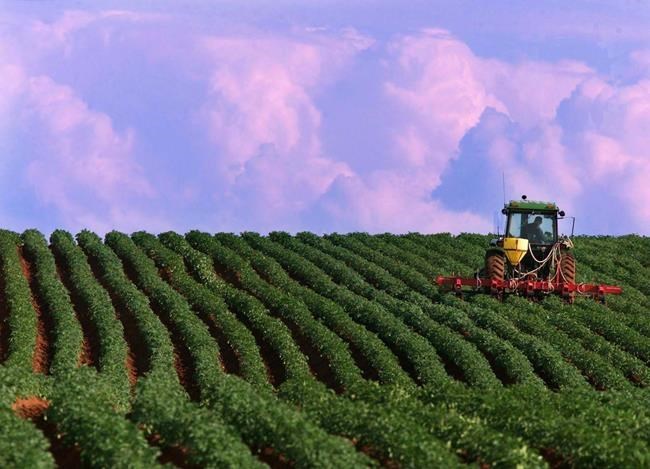CHARLOTTETOWN — Following the recent discovery of a fungus growing on two potato farms in Prince Edward Island, the Canadian government said Monday it was suspending all shipments of fresh potatoes from the province to the United States.
Meanwhile, the province's potato authority called the federal government's order politically motivated and warned it would lead to the destruction of hundreds of millions of pounds of good potatoes.
Federal Agriculture Minister Marie-Claude Bibeau told reporters Monday the United States didn't leave Canada with much choice.
"They made it clear that the U.S. would have imposed a federal order banning import of all fresh P.E.I. potatoes if Canada did not act first to suspend trade," the minister said. Had Canada not issued the order "voluntarily," Bibeau added, the United States would have imposed its own order, which "would be much more difficult to reverse."
"This is undoubtedly a tough day, and my heart goes out to P.E.I. farmers, but we will roll up our sleeves and work together and show the U.S. and the world that P.E.I. fresh potatoes are very high quality and absolutely safe," Bibeau told a news conference.
Known as potato wart, the fungal parasite spreads through the movement of infected potatoes, soil and farm equipment. It poses no threat to human health but can greatly decrease the yield of potato crops. In October, potato wart was found on two P.E.I. farms, which is in addition to detections of the fungus on 33 potato fields in the province since 2000.
David Bailey, acting chief plant health officer for the Canadian Food Inspection Agency, told reporters Monday that potato wart has been present on some continents for more than a century and can remain dormant in a field for up to 40 years.
Gord Henry, national manager of the federal agency's potato section, said potatoes in two P.E.I. fields this year were heavily impacted by potato wart, even though the fungus had not been detected in prior years during regular inspections.
P.E.I. Premier Dennis King said potatoes from the two fields were never destined for the United States, and the Island stands behind its product.
"We would not ship potatoes to our partners if we didn't think they were of the highest quality," King said during a news conference in Charlottetown.
He said he was "extremely disappointed" with the minister's decision. "Minister Bibeau said today in her press conference that P.E.I. potatoes are of the highest quality and are safe. If she truly believes this, she would put this decision through the shredder," King said. "There is nothing wrong with our potatoes."
He said his government will provide a $10-million contingency fund to help the Island potato industry, and he called on the federal government to provide financial assistance.
The Canadian Food Inspection Agency stopped shipping seed potatoes from P.E.I. to the United States on Nov. 2, and Monday's order expanded export restrictions to include all fresh potatoes. The order doesn't apply to processed potatoes such as frozen french fries.
The restrictions also don't prevent P.E.I. from shipping potatoes domestically or to countries other than the United States, and Bibeau made it clear potatoes produced in other Canadian provinces are not impacted by the measures.
Prince Edward Island's potato board issued a statement Monday saying it is shocked by the agency's decision. The board says it represents 175 farms across the province that grow one-quarter of Canada’s potatoes.
"This is solely a politically based trade disruption that will limit trade in a year when potatoes are already in short supply across North America and globally," the board wrote. It said the U.S. market is worth $120 million annually to the province's potato industry, adding that it has been preventing the spread of the fungus through a plan developed by the food inspection agency.
"Since the discovery of potato wart in P.E.I. in 2000, there has not been a single incidence of potato wart in any markets, including the U.S.A. and the rest of Canada, attributable to Prince Edward Island potatoes," the board said. "We have faith in this plan, and so should our government who developed it."
The board said there is negligible risk of spreading potato wart from the export of fresh potatoes, because trade rules require the potatoes to be washed and treated with a sprout inhibitor.
This report by The Canadian Press was first published Nov. 22, 2021.
— By Kevin Bissett in Fredericton.
The Canadian Press



